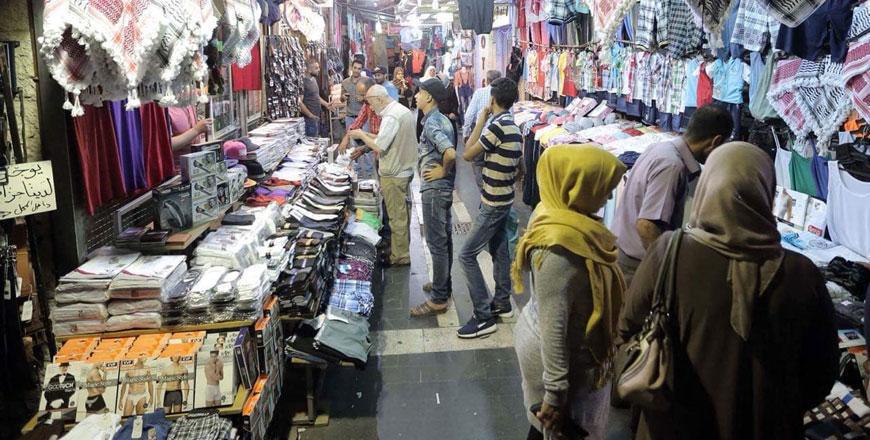You are here
Clothing sector faces bleak winter as lockdown burns hole in earnings
By Maria Weldali - Oct 20,2020 - Last updated at Oct 20,2020
AMMAN — Imports of this year’s winter clothing and footwear dropped by JD10 million, going down to JD60 million compared with JD70 million during the same period last year, according to a sector representative.
“The clothing and footwear sector has been drastically affected by the pandemic, and currently there are challenges and huge losses that did not exist in the past,” Asaad Qawasmi, a representative of the clothing, garment and jewellery sector at the Jordan Chamber of Commerce, told The Jordan Times over the phone on Sunday.
The Kingdom’s imports of clothes and footwear for the winter season witnessed big decline compared with previous years as it fell by 14 per cent, Qawasmi said, adding that the decline in the value of imports is due to a number of reasons, including the merchants’ fear regarding consumers’ purchasing power which is decreasing as a result of the repeated lockdowns in Jordan.
He added that retailers’ purchase orders for clothing and footwear remain “weak” because of the weather and the continuity of the two-day comprehensive lockdown at the end of each week.
“Jordan’s clothing and footwear sector has had many challenges during the past three years, but the pandemic has brought about new difficulties that we never experienced before, and the stagnation of the sector which was dealt with continuous offers to break even is not the answer anymore. Merchants started paying out from their own pockets and savings,” he noted.
Furthermore, Qawasmi said that “immediate action should be taken to rectify this uncertain situation”, pointing out that Fridays and Saturdays constitute around 50 per cent of the total sales in the country’s shops, particularly in the major commercial centres.
“The preparation for the upcoming winter season began in September, whereas 90 per cent of the merchandise that have been contracted for are currently in the Kingdom’s warehouses,” according to Qawasmi.
The clothes and footwear would be sold at stable prices, meeting local market needs, he added.
Qawasmi also expects that this season would witness strong competition which would be in the interest of citizens due to the discount prices the merchants will offer, aiming at improving their cash flow and fulfilling their obligations and responsibilities, particularly with regard to paying their employees’ salaries, electricity and water bills, as well as, the costs of the goods they bought amid this unprecedented period.
The whole process of importing merchandise was done remotely due to the guidelines imposed by the governments worldwide, Qawasmi said, noting that China accounts for more than 50 per cent of the total imported clothing and footwear, followed by Turkey, India, Bangladesh, Egypt and the European countries.
The apparel and footwear industry compromises approximately 11,000 stores across the Kingdom and employs around 55,000 workers of which 93 per cent are Jordanians, covering about 60 per cent of stores in the major commercial centres.
Related Articles
AMMAN — The clothing sector continues to suffer from the repercussions of the coronavirus crisis despite winter, Christmas and New Year seas
AMMAN — Even with the advent of winter, the demand for warm clothing and footwear remains limited due to the continued partial and comprehen
AMMAN — The decision to cancel the Friday lockdowns will improve the economy and allow people to shop on their day off, Asaad Qawasmi, a rep

















